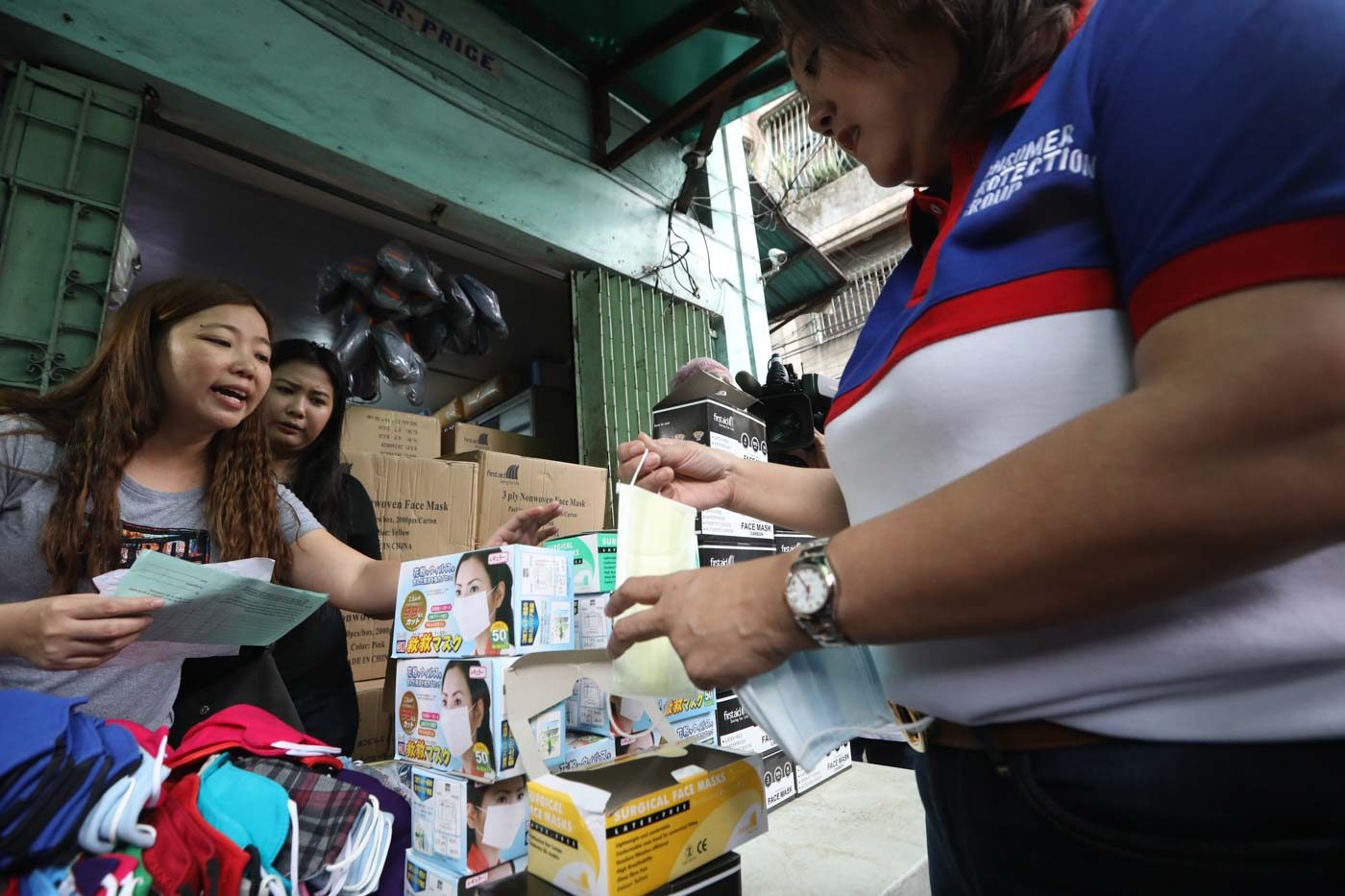SUMMARY
This is AI generated summarization, which may have errors. For context, always refer to the full article.

MANILA, Philippines – As people scramble for N95 face masks amid ashfall from the Taal Volcano eruption, the Department of Health (DOH) gave the public pointers on how to spot fake ones.
The DOH gave the tips after the Department of Trade and Industry (DTI) spotted non-medical grade N95 masks during its inspection of medical supply stores in Sta Cruz, Manila, on Tuesday, January 14. Demand for the protective gear spiked after Taal’s recent activity, with several stores running out of the product within a day after the eruption.
During a briefing on government response to the Taal Volcano eruption on Wednesday, January 15, Health Undersecretary Eric Domingo said real N95 masks are “marked with ’N95,’ rigid, thick, and molded for the contour of the face.”
“The purpose of N95 masks is so that less than 1% of outside particles other than air can pass through. When you wear it, the entire lower face – the nose and mouth – should be sealed,” Domingo added.
N95 masks are recommended for use in places with heavy ashfall, particularly Batangas, where many areas were affected by the volcanic eruption. The DOH said regular surgical masks will do in Metro Manila, where air quality had gone back to normal since Sunday.
Domingo, who also heads the Food and Drug Administration (FDA) said real N95 masks should be registered with the FDA. Flimsy N95 masks that do not completely cover the face are probably not registered with the FDA and are therefore fake, Domingo said.
“There’s a physical inspection, and if it’s a registered product, documents submitted to us should be complete, including details about the contents, how it was made, and the filtration of that particular product,” he said.
Masks for sale that are found to be unregistered would be confiscated, Domingo added. He also said the FDA had already dispatched inspectors to medical supply stores in Manila, and had coordinated with the local government to make sure violators would be held accountable.
The DTI for its part said it would recommend a list of establishments found to be selling unregistered masks to the city government of Manila.
“[We will recommend] at least for the suspension of their license to operate,” said DTI Undersecretary Ruth Castelo.
“The government will not stop looking at them and running after them, especially that we know that these people are taking advantage of the situation of people in Calabarzon, especially in Batangas,” Castelo added.
The DTI and DOH would also continue to monitor reports of establishments hiking up prices of N95 masks.
The DOH on Tuesday, January 14, ordered a price freeze on 218 essential medicines and medical supplies in the province of Batangas, which was under a state of calamity. Included in the list are N95 masks, which according to the memo must be sold for at most P105 only.
People who violate the price control provision may face between one to 10 years in prison, or be fined between P5,000 to P1 million, as per Republic Act No. 7581. – Rappler.com
Add a comment
How does this make you feel?
There are no comments yet. Add your comment to start the conversation.